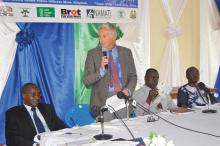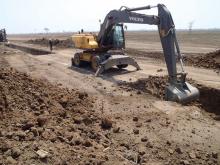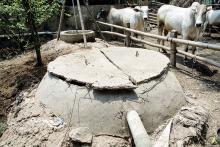Land Library
Welcome to the Land Portal Library. Explore our vast collection of open-access resources (over 74,000) including reports, journal articles, research papers, peer-reviewed publications, legal documents, videos and much more.
/ library resources
Showing items 1 through 9 of 28.This study presents a country-wide quantitative analysis of the Parliamentary Land Investigation Commission reports that were released to the public. The aim is not just to analyze the information contained in the reports, but also to elicit information they do not reveal.
A discussion note from Mekong Region Land governance (MRLG) summarizing findings and recommendations of a multi-stakeholder initiative and study tour conducted in Southern Laos, to study the social and environmental practices of two large scale companies holding large scale concessions in Lao PDR
For the past decade, GIZ has supported participatory land use planning, land registration and land titling as a vehicle for sustainable rural development in Lao PDR.
A comparative study of land rights systems in Southeast Asia and the potential of national and international legal frameworks and guidelines.
Sierra Leone is one of the least developed countries in the world and is still recovering from a civil war that ended in 2002.
The buying up of farmland by international investors is viewed highly critically. However, sweeping judgements could be inappropriate, as our author demonstrates with survey results from Ethiopia and Uganda.
The April 2015 edition of Against the Grain -- a report by Genetic Resources Action International (GRAIN) on laws and mechanisms in Asia that result in land transfer from independent farmers to larger entities.
This report draws on the Land Matrix database to analyze and better understand the phenomenon of large-scale agricultural land deals. It focuses on:
» land acquisitions or investments (“deals”) targeting the Global South and Eastern Europe, including only low and middle income countries;
Last year Angola earned 48 billion US dollars from petroleum. Yet the country that was once Africa’s largest agricultural producer is reduced to importing food. Now the government and private investors want to develop the agricultural sector, in the hope that Angola could become a new Brazil.




